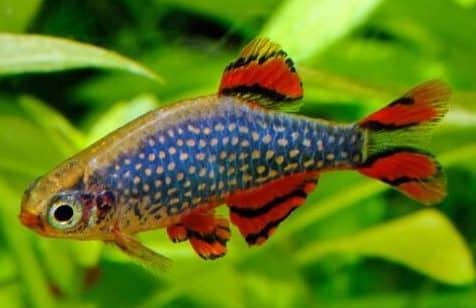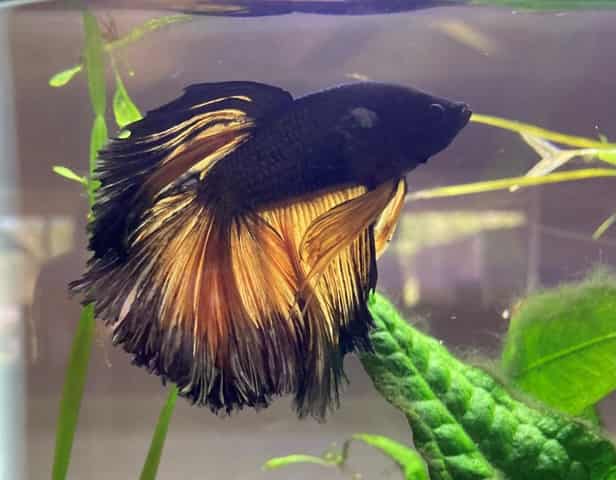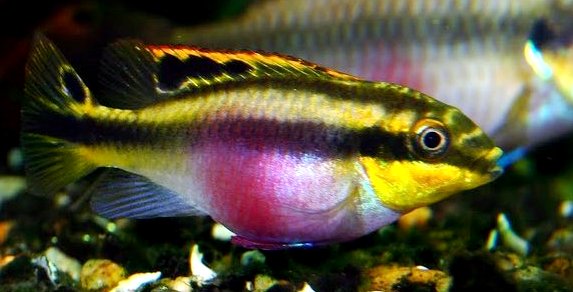Why did all my fish die suddenly? – How do I stop sudden fish death?

Aquarium fish die even in experienced hobbyists’ tanks. If you’re new to the hobby, some of your fish are going to die. This article will discuss what causes fish death in an aquarium, especially small or nano aquariums, and how to minimize or eliminate those deaths.
The way to look at fish keeping is that you have a small cube or rectangle of water in your home with fish living in it. In the wild, fish have extensive areas to live in (compared to an aquarium). Nature is very good at minimizing fish deaths not caused by predation. Eliminating waste and disease is accomplished simply by “washing” the fish and their environment with the natural water flow in the streams and rivers that fish live in.
Keeping fish in a small container in your home is an amazing feat. It is a wonder we can do it at all.
This article will discuss why the fish in your aquarium are dying and how to stop it.
Here are the four main reasons your fish die in your small aquarium, and what you can do to stop it.
1. Stress
The main reason fish die is stress.
Poor tank management, which can come in several forms, causes stress. There are many forms of poor tank management. Here are a just a few examples:
* Not cleaning the aquarium often enough.
* Having too many fish in the aquarium (overstocking).
* Lack of or too little water filtration.
* No aquarium heater, or a heater that is not functioning correctly.
How to stop fish from dying of stress.
The way to reduce stress is to become a more caring and knowledgeable fish keeper and have a desire to change how you are caring for your fish.
You will need to self educate a bit. The best way to do this is to visit social sites dealing with aquariums, fish keeping forums, and watching YouTube videos that were created on freshwater fish care. Learn and then apply what you’ve learned.
When you apply what you’ve learned, you’ll see fish deaths drop dramatically.
Signs of ammonia in your aquarium fish tank
“This might be a good luck / bad luck article. I suspect that if you’re reading this; you have an ammonia problem in your aquarium already (bad luck). That said, I’ll help you as much as I can for your sake and the sake of your fish (good luck).”
2. Neglect
Neglect is another negative element that kills aquarium fish.
Like stress, neglect sits squarely on the shoulders of the fish keeper. That said, I’m sure that most new hobbyists don’t mean to neglect their aquarium inhabitants.
Neglect takes several forms. Here are a few:
* Not changing the tank water often enough.
* Forgetting to feed your fish.
* Failure to cycle your aquarium before adding inhabitants.
* Not covering your tank until after one of your fish jumps to its death.
* Buying a tiny plastic aquarium for the kids and then letting the kids care for the fish.
I will say that even experienced hobbyists will occasionally neglect their fish, if only by accident. For example, I put a “wave maker” (used in reef aquariums) in my 30 gallon tank to increase the water flow, hoping this would reduce algae from accumulating on the plant’s leaves. This sounded good, but the vents on the side of the wave maker that allowed water in were big enough to allow small fish to get in. Those poor fish would meet their end in the impellers. I still feel bad about that.
Neglect can also take the form of a fish dying in the tank and you not knowing or caring that this happened. A huge ammonia spike can come from dead, undiscovered, decomposing fish. Ammonia is toxic and kills fish quickly, sometimes before you’ve had a chance to see that there was a problem.
Neglect can also mean changing the water but not using aquarium water conditioner to eliminate chlorine or chloramine. Failure to not condition the water can lead to dying fish. Chlorine or chloramine is almost as bad as ammonia. Your water company adds these chemicals to your water to kill bacteria. This gives you an idea why you don’t want free floating chlorine and chloramine in your aquarium.
On the other side of the coin, not changing out water enough allows diseases to get a foothold on your fish. Once a fish becomes ill, it can be challenging to get them well again. Helpful article: How to clean an aquarium brimming with fish.
To stop neglect, you have two choices.
1. Become a better, more caring fish keeper.
2. Once all of your fish are dead from neglect, tear down the tank and put it in storage or sell it. Please don’t keep replacing dead fish with new fish just because you’re neglecting your aquarium. Get better at keeping fish, or stop keeping fish.
Question about neglect: “Can dying or dead plants kill my fish?” Answer: Maybe, but probably not. If you’ve stuffed your aquarium with living plants and they all die because of your neglect and then you don’t clean the tank and you let the plants rot, yes, that will kill fish.The process of a huge amount of plants rotting will lead to an ammonia spike. That said, this is super unlikely. Most regular aquarists don’t have that many plants in their aquarium.
So I’m going to say, no, under normal circumstances, dying plants won’t kill fish.
Grow Your Own Live Fish Food – 4 Easy Types

“To the container, add lettuce, spirulina, yeast or best, farm animal dung. Fill your container with conditioned water and your choice of the mentioned ingredients.”
3. Overfeeding, Especially Flake Food
Overfeeding flake food can kill fish.
There are three reasons for this:
1. Overeating causes fish to die because eating too many freely available flakes as the flakes absorb water they expand, potentially causing internal damage to your fish. Given enough time and food, the fish dies.
2. Another problem with overfeeding is that it allows a lot of wasted food to hide in cracks and crevices. Rotting food can be a food source for bad bacteria. Diseases that a fish might normally fight off now cause your fish to die. This happens because the bacteria load in the aquarium is too high.
3. Overfeeding can also cause an ammonia spike. Ammonia is a transitory by-product of the aquarium nitrogen cycle. Even though ammonia is a naturally occurring chemical in an aquarium, in abundance it kills fish. This “abundance” happens because of uneaten food rotting.
Here are three ideas on how to decrease the amount of fish food, including flake food you’re giving to your fish. These suggestions are:
* Take out the normal amount of food you would give your fish, then put half the food back. Give the rest to your fish.
* Every other day feed your fish one time during that day. If you normally feed in the morning and evening, feed only in the morning every other day.
* Once a week, give your fish a 24-hour fast. I do this on Sundays. This clears out the fish’s innards and reduces wasted food in your aquarium.
You want your fish to be “lean, mean and healthy” and these are good ways to help that happen.
Are you thinking about creating a website?
I used Divi WordPress software to create this website.
You can create a website like mine. Divi makes it easy. Drag and drop or copy and paste, easy. Tap here to give it a try.

I’ve used divi for 4 years and strongly recommend it.
![]()
4. Disease
If you are caring for your fish successfully, it’s fairly unlikely that your fish will get sick, but under certain conditions, it can happen.
Fish become ill for two reasons:
1. Poor tank conditions leading to a buildup of bacteria that end up killing the fish. Imagine if you lived in squalor vs. living in a clean home. Living in dirty conditions would leave you open to diseases that you normally wouldn’t get. I’ve discussed this earlier in this article.
2. Buying new fish and then immediately adding those fish to your main aquarium.
Let’s be honest, most pet shops are not good, caring keepers of fish.
Their philosophy is “Ship the fish in, sell the fish and move them out, as fast as possible.”
In fact, if you go into most pet or fish stores right when they’ve opened, there is a chance you’ll see dead fish in their aquariums that died the night before. This is not a pretty sight.
Imagine you buy new fish, take them home and dump them in with the rest of your fish, not understanding that the new fish are carrying disease they got at the pet store. A few days later, all the fish in your aquarium are getting sick and dying. It’s a fish pandemic.
To keep from giving all of your fish “pet shop” disease, you’ll want to have a quarantine tank set up and running. Usually a cheap 10-gallon with a lid, a heater and a filter will work.
Now, instead of dumping your new fish in with your other fish, you dump them in the quarantine tank (QT). You let your new fish rest in the “QT” for a couple of weeks. If they get sick, you can get them well without disturbing your regular tank.
When you’re sure the QT fish are happy and healthy (after perhaps a week or two) then you can place them in the main aquarium.
What if your new fish aren’t well? You own them now. It’s your job to get them better.
How do you do that?
How to (usually) cure your sick fish, naturally, without using chemicals:
I’ve never had good luck using chemicals to cure fish disease. I will say that under some circumstances chemicals can cure some fish diseases.
How to Feed Your Freshwater Fish Like a Pro: 9 Foods They’ll Love
 Above: Freshwater Stingray
Above: Freshwater Stingray
“Bigger fish require larger food options like Mysis shrimp, krill, and silversides.
If you have giant fish, you may need to shop at the grocery store for human-sized food, such as prawns, cocktail shrimp, and fish filets.”
The very best, almost miraculous, way to cure sick fish is to do massive, daily water changes.
To do this, take out enough water so that the fish are laying on the bottom of the tank in just enough water to cover them. Refill the tank with freshwater that’s the right temperature, and that you’ve conditioned with “aquarium water conditioner” to remove chlorine and chloramine.
In three days you’re going to think, “Wow, they’re better already! I can stop doing the water changes.”
Nope, if it were my tank and my sick fish, I would do massive water changes for at least seven days. More days if needed, of course.
Be aware that not all fish disease can be cured. A couple of supposedly incurable diseases include fish TB. Fish TB is by far the most common bacteria in aquariums. Fish TB symptoms include the fish swelling and terrible sores around the mouth).
Neon Tetra Disease is another apparently incurable disease. Symptoms of Neon Tetra disease include loss of coloration, cysts forming on the body and deformation of the spine, followed by death.
I haven’t yet read of someone curing neon tetra disease. In regards to fish TB, Diana Walstad had good luck using UV sterilizers as indicated in this article. Diana’s articles can be challenging to read but are packed with information on fish keeping problems and successes.
(this section contains affiliate links)
So, stress, neglect, overfeeding and disease will kill the fish in your small aquarium. To stop this from happening, just take a few steps that an experienced, caring fish keeper would take: care more and self-educate. You and your fish will be happy.
______________________________
Questions similar to “Why Are The Fish Dying In My Small Or Nano Aquarium And How Can I Stop It?”
Question: “My fish started dying after I changed the water. Why did this happen?”
Answer: It is likely that you didn’t condition the water you put back into the tank, therefore dumping a bunch of chlorine or chloramine into your tank. Your water company adds chlorine and chloramine to your tap water to kill bacteria. These chemicals also kill fish. If you did condition the water, then it is possible that your water company “super dosed” the water and your conditioner couldn’t fix such a large amount of chlorine or chloramine.
Question: “Which freshwater aquarium fish is the hardest to kill?”
Answer: In my opinion, there are two fish that I think are hardest to kill. I base these choices on my experiences. I’m sure other experienced hobbyists will have other answers.
-
- I’ve had extremely good luck keeping plecostomus fish. (There is a huge selection on Ebay. Types you’re not going to see in your fish store.)
- I will also say bettas. In the wild betta fish can be found growing and breeding in very poor conditions, for example: stagnant ponds, rice fields, even large puddles of water during the monsoon season. If they can survive these conditions, they’ll survive in your aquarium.
- I’ve had extremely good luck keeping plecostomus fish. (There is a huge selection on Ebay. Types you’re not going to see in your fish store.)
You can find more in my article: 20 best fish for beginners. Tap here.
Question: “Which freshwater aquarium fish is the easiest to kill?”
Answer: I’m going to name three fish which are easiest to kill.
I’ve had poor success with neon tetras and cardinal tetras. If you do research on these fish, you’ll find a lot of information saying they’re hard to keep alive despite how common they are.
I have also read that discus fish are challenging. They require warmer than average temperatures and pristine water. I’ve read articles that talk about breeders in Asia doing 90% daily water changes in their discus tanks, just to keep the fish healthy.
I’ve kept discus. My success rate was poor.
An 8 point guide to taking beautiful aquarium pictures

“Fish usually don’t stop moving, making it hard to get a good photo…”
Why are the fish dying in my freshwater aquarium?
“Question: “Which freshwater aquarium fish is the hardest to kill?”
Answer: In my opinion, there are two fish that I think are hardest to kill. I base these choices on my experiences. I’m sure other experienced hobbyists will have other answers…”





